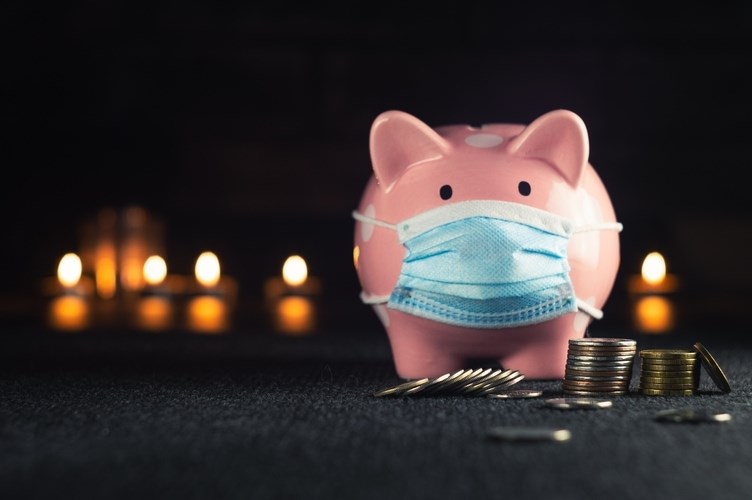What are your Bounce Back Loan options?
Bounce back loans provided much-needed fast access to cash for businesses and self-employed people impacted by the pandemic. Small businesses and sole traders could access loans from £2,000 up to 25% of their most recent yearly turnover, up to a maximum of £50,000.
The government guaranteed 100% of the balance of these loans, meaning no credit or eligibility checks were required.
Businesses had no fees or interest to pay for the first 12 months. The government paid the first year of interest and a payment holiday was automatically applied for the first 12 months of the loan.
30th June 2021 marked the end of the one-year payment-free period for businesses who availed of these loans at the very start. Unsurprisingly, many still were not yet ready to start making repayments. Other businesses were in better shape but many could still do with breathing space to rebuild their cash flow.
The government anticipated this, and so businesses have been offered a range of Pay As You Grow options.
Pay As You Grow (PAYG)
If your business isn’t able to start making its monthly Bounce back Loan repayments when they fall due, your Pay As You Grow Options are:
- extend the term of your loan to 10 years
- move to interest-only repayments for a period of 6 months (you can use this option up to 3 times)
- pause your repayments for a period of 6 months (you can use this option once)
While these options offer necessary lifelines to businesses still struggling with cash flow after multiple lockdowns and ongoing restrictions, they will not be the right option for all.
Using Pay As You Grow doesn’t affect your credit score or negatively impact your credit file. However, some lenders are advising they will use Pay As You Grow requests to assess affordability in future lending applications.
Borrowers should also be aware that all of these options increase their overall debt. Each of these options effectively extends the term of your loan, thereby increasing the total interest you pay on top of the loan repayments.
Alternatives to Pay As You Grow (PAYG)
It’s important to start by pointing out that it’s possible to pay off your loan early without any penalties. If you no longer need the loan to support cash flow, you can repay in full, or make additional payments on top of your monthly repayments.
Of course this will not be an option for businesses still struggling with cash flow. The Bounce back Loans were designed as a lifeline to keep companies going until they could trade again. Many haven’t yet reopened. With the final easing of restrictions postponed until at least July, thousands have no prospect of income for another month.
Many others have only been trading for short periods of time, with interruptions and restrictions curtailing trade and capacity.
For others, the break in trade will have been terminal, even if the doors are open again.
If you were a start-up, operating at break-even, or struggling financially before the pandemic, you may not yet be making ends meet.
The resumption of VAT payments, the ending of payment holidays, and the end of eviction moratoriums this year have whipped up a perfect storm for many small businesses’ cash flow. If PAYG options won’t be enough to save your business, there are other options.
Seek Advice
JT Maxwell are licensed Insolvency Practitioners providing solutions for businesses in debt and personal debt throughout the UK.
The first thing we do when a business comes to us for help is to carry out an independent business review. This is a detailed analysis of the business which gives us a clear picture of its financial situation and whether it is still viable.
A business that’s struggling to pay its bills may still be viable. We’ll look at options including streamlining operations, refinancing debt, and raising funds from asset / invoice based lending. These can improve liquidity and stabilise finances, but may not be sufficient to avoid insolvency.
Company Voluntary Arrangement (CVA) or Individual Voluntary Arrangement (IVA)
A CVA can form part of a business rescue strategy, aimed at giving the company and its creditors flexibility to come to an agreement on its debts. It’s a legally binding agreement that allows a proportion of the debts to be paid back over a fixed period of time.
If your business is going to struggle with other debts beside your Bounce back Loan, this might be a better option.
All debts would be consolidated and an agreed proportion of the total debt would be paid off. This would be one monthly repayment, designed to be an amount you can afford, and paid over an agreed period of time.
Your business would be able to keep trading, giving you a chance to build back its cash flow and return to financial stability. Bounce back Loans were guaranteed by the government, so Directors did not have to underwrite the borrowing with a personal guarantee.
For sole traders/freelancers, an IVA would be the insolvency solution in this scenario.
You ‘are’ your company and are therefore personally liable for the loan. Your IVA would work in a similar way to the CVA. An agreement would be reached with your creditors to pay back an agreed proportion of your total debt. This would be repaid over a fixed period of time, via one monthly repayment.
Creditors’ Voluntary Liquidation (CVL) or Bankruptcy
Despite restrictions easing across the UK, ongoing economic uncertainty due to COVID-19 means that sadly businesses in certain industries or niches are finding themselves unviable. We’re certainly seeing burnt-out company owners walking away from their ventures or seeking employment to stabilise family finances.
A CVL is the best option to allow an orderly wind down of a company. You appoint a licensed Insolvency Practitioner to act as liquidator. They sell the company’s assets to pay creditors and lenders, and any outstanding debt is kept within the liquidation.
You can walk away from the company at this point and can even purchase company assets from the liquidator. Directors who have taken a salary can make a redundancy claim that is paid directly to them and not to the liquidation. These funds come from the national insurance fund.
Again, any sole traders for whom an IVA isn’t suitable, bankruptcy can be a solution to deal with the debt. Assets such as your car or home may be at risk. Once you are discharged from bankruptcy you can make a fresh start.
You can continue to trade as a sole trader, however you won’t be able to access credit and your bank account may be frozen during bankruptcy.
Don't wait for things to get worse
If you’re wondering what to do about your Bounce back Loan or other problem debts, JT Maxwell Ltd will be happy to chat to you about your options, completely free of charge.
Conduct your search and enquire now for free advice on the best options for YOUR business.
Blog by JT Maxwell
Join Our FREE Business Owners Hub
Get access to our latest blogs, PDF downloads and updates.





